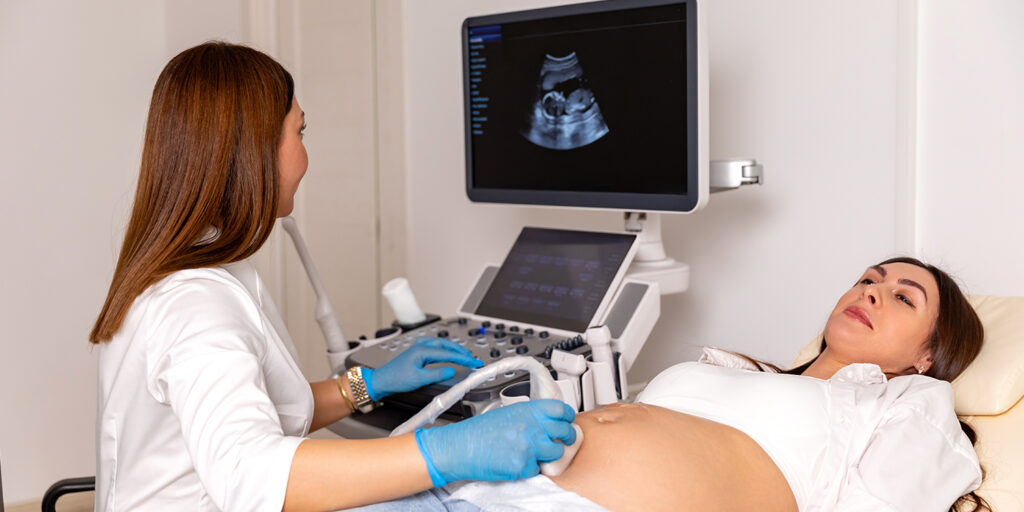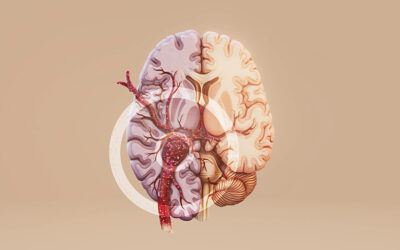Understanding Ectopic Pregnancy: Signs, Causes, and Treatment

An ectopic pregnancy occurs when a fertilized egg implants outside the uterus, making it a non-viable pregnancy that requires medical attention. While it is not a common occurrence, it can pose serious health risks if not diagnosed and treated in time. Understanding the causes, risk factors, and available treatment options is essential in managing this condition effectively. Early detection not only helps prevent complications, but also ensure the best possible outcome for future pregnancies. This blog explores everything you need to know about ectopic pregnancy, including its causes, symptoms, diagnosis, treatment, and what to expect during recovery. Without further ado, let’s begin by understanding what ectopic pregnancy actually means.
Table of Contents
ToggleWhat Is an Ectopic Pregnancy?
An ectopic pregnancy occurs when a fertilized egg implants outside the uterus, making it impossible for the pregnancy to continue. In a normal pregnancy, the fertilized egg travels through the fallopian tube and implants in the uterine lining. However, in an ectopic pregnancy, the egg implants in an area where it cannot develop properly, posing health risks to the mother.
The most common location for an ectopic pregnancy is the fallopian tubes, a condition known as a tubal pregnancy. However, it can also occur in the cervix, ovary, or abdominal cavity. Since these areas lack the necessary space and blood supply to support a growing pregnancy, medical intervention is required to prevent complications.
Ectopic pregnancies are rare, but early detection and treatment are crucial to avoid severe complications such as ruptured fallopian tubes and internal bleeding.
Types of Ectopic Pregnancy
An ectopic pregnancy can occur in different locations outside the uterus. The type of ectopic pregnancy depends on where the fertilized egg implants. Identifying the exact location helps doctors determine the most suitable treatment approach.
1. Tubal Pregnancy
This is the most common type of ectopic pregnancy, where the fertilized egg implants in the fallopian tubes. Since the fallopian tubes are narrow and not designed to support a growing embryo, this type of pregnancy cannot continue and may lead to a rupture if untreated.
2. Cornual (Interstitial) Ectopic Pregnancy
In this rare type, the fertilized egg implants in the cornual region of the uterus, where the fallopian tube meets the uterus. Cornual pregnancies can grow longer than tubal pregnancies before symptoms appear, increasing the risk of severe internal bleeding.
3. Cervical Ectopic Pregnancy
This occurs when the embryo implants in the cervix, the lower part of the uterus. Cervical ectopic pregnancies are uncommon and may lead to heavy vaginal bleeding.
4. Ovarian Ectopic Pregnancy
In rare cases, the fertilized egg attaches to the ovary instead of the uterus or fallopian tube. Ovarian ectopic pregnancies can be difficult to diagnose as they may mimic an ovarian cyst.
5. Abdominal Ectopic Pregnancy
This is the rarest form, where the embryo implants in the abdominal cavity outside the reproductive organs. If undetected, it can lead to complications as the pregnancy grows.
Since most ectopic pregnancies occur in the fallopian tubes, they are commonly referred to as tubal pregnancies. Regardless of the location, an ectopic pregnancy is not viable and requires medical intervention to prevent complications.
Causes and Risk Factors for Ectopic Pregnancy
An ectopic pregnancy occurs when a fertilized egg implants outside the uterus instead of reaching the uterine lining. While the exact cause is not always clear, certain medical conditions and risk factors can increase the likelihood of this condition.
Causes of Ectopic Pregnancy
- Fallopian Tube Damage: Scarring or blockages in the fallopian tubes can prevent the fertilized egg from reaching the uterus.
- Hormonal Imbalances: Changes in hormone levels may affect the movement of the fertilized egg.
- Abnormal Development of the Fertilized Egg: Structural abnormalities in the embryo can interfere with proper implantation.
Risk Factors for Ectopic Pregnancy
Certain factors can increase the likelihood of an ectopic pregnancy:
- Previous Ectopic Pregnancy: Women who have had an ectopic pregnancy before are at a higher risk of experiencing it again.
- Pelvic Inflammatory Disease (PID): Infections such as chlamydia or gonorrhoea can cause inflammation and scarring in the fallopian tubes, increasing the risk of implantation outside the uterus.
- Fallopian Tube Surgeries or Abnormalities: Previous tubal surgery, including tubal ligation or repair, can affect the structure and function of the tubes.
- Use of Fertility Treatments or IVF: Assisted reproductive technologies (ART), such as in vitro fertilization (IVF), may slightly increase the risk of an ectopic pregnancy.
- Use of an Intrauterine Device (IUD) or Certain Birth Control Methods: Although rare, pregnancies that occur while using an IUD are more likely to be ectopic.
- Smoking: Smoking damages the fallopian tubes, affecting their ability to transport the fertilized egg.
- Maternal Age Over 35: Women over 35 have a higher risk of ectopic pregnancy due to age-related reproductive changes.
What Are the Symptoms of an Ectopic Pregnancy?
The symptoms of an ectopic pregnancy can vary from mild discomfort to severe pain, depending on how far the pregnancy has progressed. In the early stages, it may resemble a normal pregnancy, making early detection difficult. However, as the pregnancy develops, symptoms become more noticeable.
1. Early Symptoms of an Ectopic Pregnancy
- Missed period and positive pregnancy test
- Mild cramping or discomfort in the lower abdomen
- Light vaginal bleeding (spotting), which may be different from a normal period
- Nausea and breast tenderness, similar to normal pregnancy symptoms
2. Warning Signs of an Ectopic Pregnancy
- Sharp or stabbing abdominal or pelvic pain (may come and go or be localized on one side)
- Vaginal bleeding, which may be light or heavy, different from a regular period
- Pain in the lower back, pelvis, or shoulder tip, which can be a sign of internal bleeding
- Dizziness, fainting, or weakness, indicating low blood pressure from blood loss
If left untreated, an ectopic pregnancy can lead to a ruptured fallopian tube, which is a medical emergency. Recognizing these symptoms early and seeking immediate medical attention can help prevent serious complications.
How Is an Ectopic Pregnancy Diagnosed?
Since the early symptoms of an ectopic pregnancy can resemble those of a normal pregnancy, a proper medical evaluation is essential to confirm the diagnosis. Doctors use a combination of blood tests, imaging scans, and physical examinations to determine if a pregnancy is developing inside or outside the uterus.
Pregnancy Test (hCG Levels)
- A blood test measures the levels of human chorionic gonadotropin (hCG), a hormone produced during pregnancy.
- In an ectopic pregnancy, hCG levels may rise slower than expected compared to a normal pregnancy.
Transvaginal Ultrasound
- A transvaginal ultrasound is the most effective way to locate a pregnancy.
- The doctor inserts a small ultrasound probe into the vagina to check whether the gestational sac is inside the uterus.
- If no pregnancy is detected in the uterus, further evaluation is needed to check for an ectopic pregnancy.
Pelvic Examination
- A doctor may perform a pelvic exam to check for tenderness, swelling, or masses in the lower abdomen.
- However, a physical examination alone is not enough to confirm an ectopic pregnancy and is usually combined with other tests.
Additional Blood Tests
- In some cases, repeat blood tests are done over a few days to track changes in hCG levels.
- If levels are rising abnormally or not doubling as expected, an ectopic pregnancy is suspected.
An early diagnosis of an ectopic pregnancy allows for timely medical intervention, reducing the risk of complications such as ruptured fallopian tubes and internal bleeding. Seeking medical care at the first sign of unusual pregnancy symptoms can improve outcomes and prevent serious health risks.
Treatment Options for Ectopic Pregnancy
Since an ectopic pregnancy cannot progress normally, medical intervention is necessary to prevent complications. The treatment approach depends on factors such as the location of the pregnancy, its size, and whether it has caused internal bleeding. There are two main treatment options: medication or surgery.
Medical Treatment (Methotrexate Injection)
- Methotrexate is a medication that stops the growth of the ectopic pregnancy and allows the body to absorb the tissue naturally.
- It is most effective when the pregnancy is detected early and has not ruptured.
- Requires monitoring of hCG levels over a few weeks to ensure complete resolution.
Who Can Receive Methotrexate?
- The pregnancy is small and has not caused internal bleeding.
- hCG levels are not too high.
- There is no severe abdominal pain or ruptured fallopian tube.
Surgical Treatment
If the ectopic pregnancy is advanced, or if there are signs of rupture, surgery is required. The two common procedures are:
a. Laparoscopic Surgery (Minimally Invasive Surgery)
- A small incision is made in the abdomen, and a thin camera (laparoscope) is used to remove the ectopic pregnancy.
- The surgeon may remove the pregnancy while preserving the fallopian tube (salpingostomy) or remove the affected tube entirely (salpingectomy).
- This method is preferred if the pregnancy is detected before rupture.
b. Laparotomy (Open Surgery)
- If the ectopic pregnancy has ruptured, causing internal bleeding, an emergency laparotomy (open abdominal surgery) is required.
- This procedure involves a larger incision and is performed when there is a severe risk to the patient’s life.
Recovery After Treatment
- Recovery depends on the type of treatment received and whether complications occurred.
- Patients treated with methotrexate may need follow-up blood tests until hCG levels return to normal.
- After laparoscopic surgery, most women recover within a few weeks, while laparotomy may require a longer recovery period.
Early diagnosis and appropriate treatment help prevent serious complications and preserve future fertility.
Complications of Ectopic Pregnancy
If an ectopic pregnancy is not diagnosed and treated in time, it can lead to serious health risks. Since the fertilized egg grows in an area that cannot support a pregnancy, complications can arise, especially if the pregnancy progresses too far.
1. Ruptured Ectopic Pregnancy
- One of the most dangerous complications is the rupture of the fallopian tube due to excessive stretching. This can cause severe internal bleeding, which is a medical emergency.
- Symptoms of a ruptured ectopic pregnancy include:
- Sudden, sharp abdominal pain
- Heavy vaginal bleeding
- Weakness, dizziness, or fainting
- Rapid heartbeat and signs of shock
Emergency surgery is required in such cases to control the bleeding and prevent life-threatening complications.
2. Damage to the Fallopian Tubes
- If an ectopic pregnancy is not treated early, it can cause permanent damage to the fallopian tube.
- This can increase the risk of future ectopic pregnancies or cause difficulties in conceiving naturally.
3. Fertility Issues
- Women who have had an ectopic pregnancy may experience difficulty in getting pregnant again, especially if one fallopian tube has been removed.
- The risk of another ectopic pregnancy increases after experiencing one.
- However, many women successfully conceive again with proper medical care and monitoring.
4. Emotional and Psychological Impact
- An ectopic pregnancy can be emotionally distressing, as it involves pregnancy loss.
- Many women experience feelings of grief, anxiety, or fear about future pregnancies.
- Seeking emotional support, counseling, or joining support groups can help with the recovery process.
Reducing the Risk of Complications
- Early diagnosis and treatment are key to preventing severe complications.
- Women with a history of ectopic pregnancy should have early ultrasound scans in future pregnancies to confirm the location of implantation.
- Maintaining good reproductive health, treating infections early, and avoiding smoking may help lower the risk of ectopic pregnancies.
Recognizing the symptoms early and seeking timely medical care can prevent serious complications and improve health outcomes.
Can You Get Pregnant After an Ectopic Pregnancy?
Experiencing an ectopic pregnancy can be emotionally and physically challenging, but many women can conceive again with proper care and medical guidance. The chances of a successful pregnancy depend on the type of treatment received, overall reproductive health, and any existing risk factors.
1. Chances of Getting Pregnant After an Ectopic Pregnancy
- Women who have had an ectopic pregnancy with methotrexate treatment or a salpingostomy (where the fallopian tube is preserved) still have a good chance of conceiving naturally.
- If one fallopian tube was removed due to rupture, the other tube can still support pregnancy, though the chances may be lower.
- In cases where both fallopian tubes are damaged or removed, assisted reproductive technologies (such as IVF) may be an option.
2. Precautions to Take Before Trying to Conceive Again
- Wait for full recovery: Doctors usually recommend waiting at least three months before trying to conceive again, especially if methotrexate was used.
- Early pregnancy monitoring: Women with a history of ectopic pregnancy should have an early ultrasound scan (around 6 weeks) in future pregnancies to confirm the implantation site.
- Treat underlying conditions: Managing risk factors such as pelvic infections, endometriosis, or previous tubal damage can improve the chances of a healthy pregnancy.
- Maintain reproductive health: Quitting smoking, following a balanced diet, and maintaining a healthy weight can enhance fertility and reduce the risk of another ectopic pregnancy.
3. Importance of Consulting a Doctor
If you have had an ectopic pregnancy and are planning to conceive again, consulting a gynaecologist or fertility specialist can help you understand your fertility status and possible risks. Preconception counseling and close monitoring in the early stages of pregnancy can help ensure a safer experience.
While an ectopic pregnancy can affect future fertility, many women go on to have healthy pregnancies with proper medical care.
Conclusion
While an ectopic pregnancy can be distressing, advancements in medical care allow for effective treatment, and many women can conceive again with proper guidance. If you have a history of ectopic pregnancy or experience unusual pregnancy symptoms, seeking immediate medical care is crucial.
For expert diagnosis, treatment, and fertility counseling, consult a gynaecologist at Graphic Era Hospital, where experienced specialists provide comprehensive reproductive healthcare. Schedule an appointment today to receive personalized guidance and medical support.
Frequently Asked Questions
Can an ectopic pregnancy be detected early?
Yes, early detection is possible through blood tests (hCG levels) and transvaginal ultrasounds. If pregnancy symptoms include sharp abdominal pain, unusual vaginal bleeding, or dizziness, consulting a doctor immediately can help confirm the diagnosis.
Is there a way to prevent ectopic pregnancy?
While ectopic pregnancy cannot always be prevented, reducing risk factors such as treating pelvic infections early, quitting smoking, and maintaining reproductive health may help lower the chances. Women with a history of ectopic pregnancy should seek early pregnancy monitoring in future pregnancies.
Can an ectopic pregnancy show a positive pregnancy test?
Yes, an ectopic pregnancy will result in a positive pregnancy test due to rising hCG levels. However, these levels may rise slower than in a normal pregnancy, which is why doctors monitor hCG levels closely if an ectopic pregnancy is suspected.
What is the recovery time after ectopic pregnancy surgery?
Recovery depends on the type of surgery:
- Laparoscopic surgery: Most women recover within 2 to 4 weeks.
- Laparotomy (open surgery): Recovery may take 4 to 6 weeks due to the larger incision and healing process.
Following doctor’s advice, rest, and avoiding strenuous activities can speed up recovery.
How soon can you try to conceive after an ectopic pregnancy?
Doctors typically recommend waiting at least three months before trying to conceive again, especially if methotrexate was used. Those who underwent surgery should wait until the body has healed completely. A preconception check-up and early pregnancy monitoring can help ensure a safer pregnancy.
By Specialities
- Bariatric Surgery
- Cancer Care
- Cardiology
- Dental
- Dermatology
- Diabetes & Endocrinology
- Endocrinology and Diabetes
- ENT (Ear Nose Throat)
- Eye Care
- Gastroenterology
- Haematology
- Health Awareness
- Health Care
- Health Tips
- Hematology
- Hepatology
- Internal Medicine
- Mental Health and Behavioural Sciences
- Metabolic
- Neonatology
- Nephrology
- Neurology
- Nutrition & Dietetics
- Obstetrics & Gynaecology
- Oncology
- Ophthalmology
- Orthopaedics
- Paediatric
- Physiotherapy & Rehabilitation
- Plastic and Reconstructive Surgery
- Psychology
- Pulmonology
- Rheumatology
- Spine
- Urology
Recent Posts
- A Complete Guide to Blood Clots in the Brain
- Heart Attack: Symptoms and Treatment
- World Obesity Day 2026: Understanding, Preventing, and Managing Obesity
- Bacterial and Viral Pneumonia: Causes, Symptoms, and Treatment Options
- World Hearing Day 2026: Empower Yourself to Protect and Improve Your Hearing
Need expert medical advice?
Share your details and our healthcare specialists will reach out to assist you.
By proceeding, you acknowledge and agree to our Privacy Policy, Terms of Use, and Disclaimer.




















